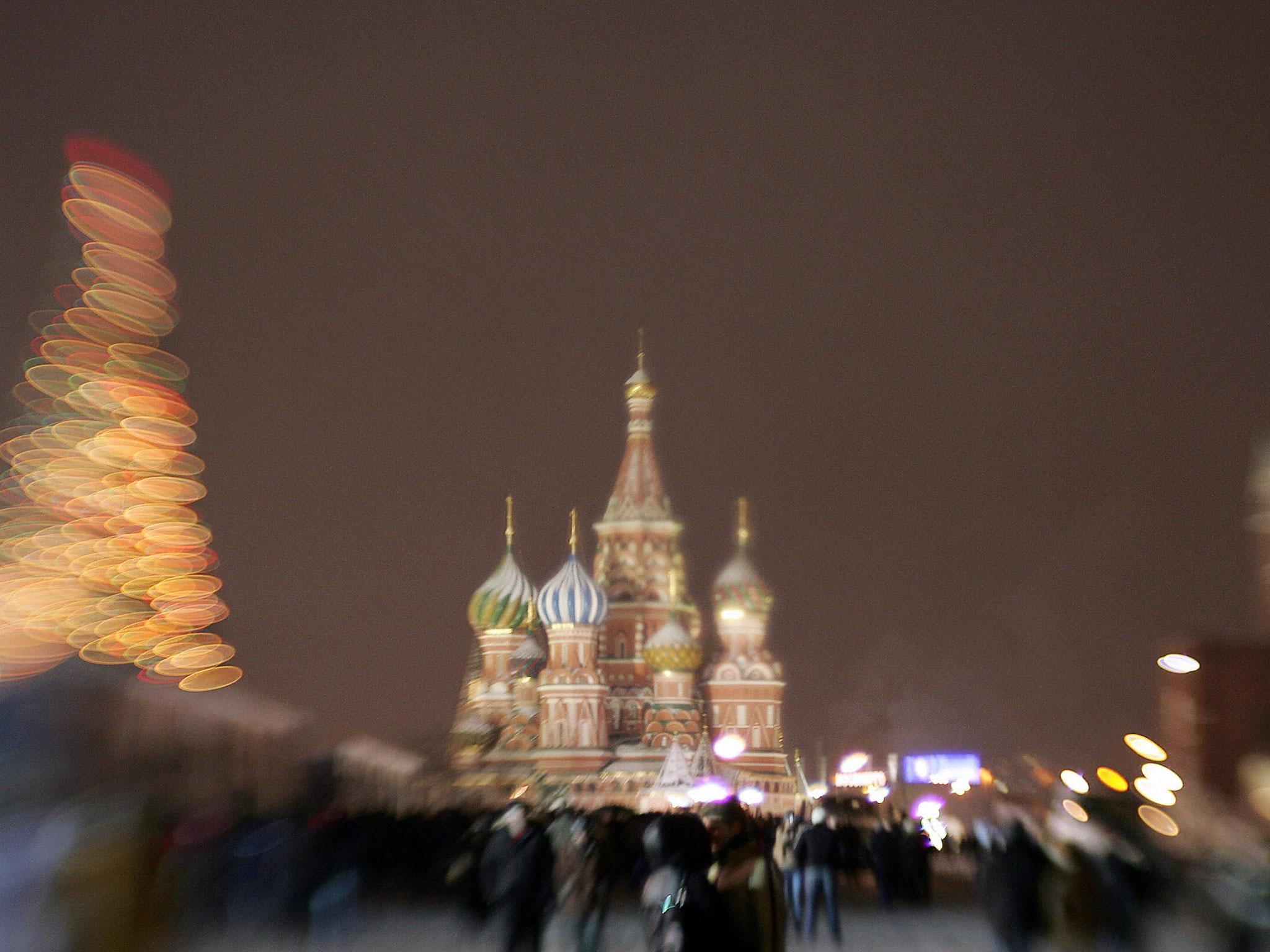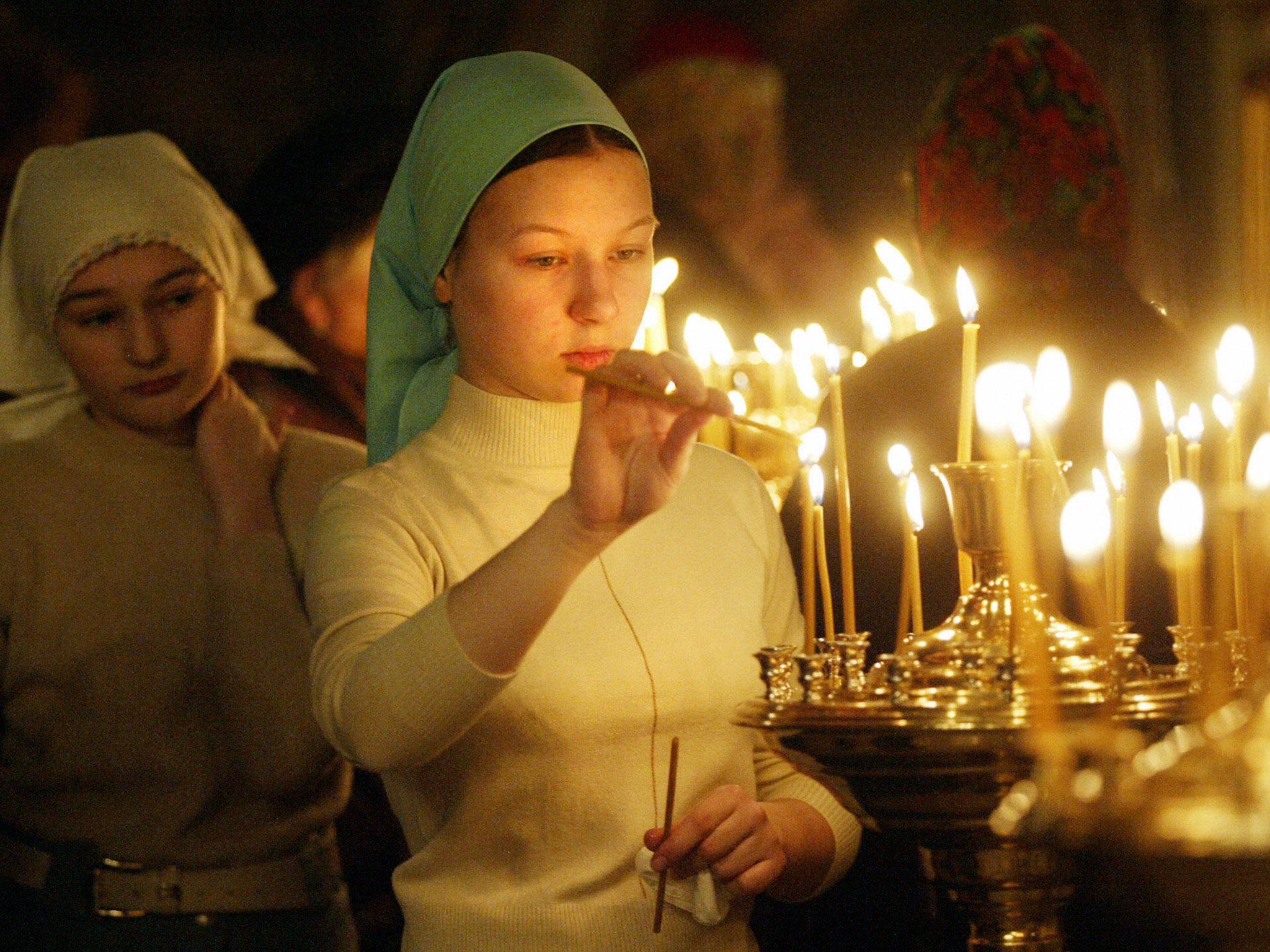Orthodox Christmas: When does Russia celebrate it and why is the date different around the world?
Christmas might be over for many, but for Orthodox Christian communities, the festivities are just beginning

Your support helps us to tell the story
From reproductive rights to climate change to Big Tech, The Independent is on the ground when the story is developing. Whether it's investigating the financials of Elon Musk's pro-Trump PAC or producing our latest documentary, 'The A Word', which shines a light on the American women fighting for reproductive rights, we know how important it is to parse out the facts from the messaging.
At such a critical moment in US history, we need reporters on the ground. Your donation allows us to keep sending journalists to speak to both sides of the story.
The Independent is trusted by Americans across the entire political spectrum. And unlike many other quality news outlets, we choose not to lock Americans out of our reporting and analysis with paywalls. We believe quality journalism should be available to everyone, paid for by those who can afford it.
Your support makes all the difference.While most of us are getting ready to return to work after the festive period, celebrations are just beginning in others.
Orthodox Christian communities around the globe are preparing for their own Christmas, which they celebrate on January 7.
But why chose this day to celebrate? Who celebrates it and how is the occasion marked?
Why the Orthodox Church celebrates Christmas on January 7?
This is simply due to a difference in calendars.
The majority of the Orthodox churches worldwide use the Julian calendar, created under the reign of Julius Caesar in 45 BC, and have not adopted the Gregorian calendar, proposed by Latin Pope Gregory of Rome in 1582.
In 1923 a revised version of the Julian calendar was introduced bringing Christmas Day in line with the Gregorian calendar, but it was only adopted by some of the Orthodox Christian countries including Greece, Cyprus and Romania.
There are 13 days in difference between the two calendars, the Gregorian calendar being the one long adopted by Western nations.
The Epiphany, for instance, is celebrated on January 19, rather than January 6.
How do Russians celebrate Christmas?

In Russia, home to 39 per cent of the world’s Orthodox Christians, people enjoy more days off over Christmas than any other country in Europe, starting on New Year’s Day and carrying through to Orthodox Christmas day.
During the Soviet era, the celebration of Christmas was banned (along with the celebration of other religious holidays).
Instead “Ded Moroz” (Grandfather Frost) and his granddaughter Snegurochka are attached to New Year’s Eve, which in Russia represents the New Year and other traditions linked with Christmas, such as trees and presents, all rolled into one.
Russians were allowed to celebrate Christmas once again after the collapse of the Soviet Union in 1991, but old habits die hard and the Christmas festivities are still overshadowed by big New Year celebrations, which are more like the Western Christmas.
Traditions that remains include a big family meal on Christmas Eve which often features12 courses to represent the 12 apostles.
The meal varies from region to region but the most traditional ones include:
- Kutia: a pudding traditionally made of wheat and fruit, with the addition of poppy seeds and honey.
- Vzvar : a traditional Russian drink, erved at the beginning of the Russian Christmas dinner. The Russian Vzvar consists of the following ingredients: Dried prunes, dried apples, sugar and water
- Roast cod or fish
- Borscht or beetroot soup
- Vegetable Pie
- Salads such as the salad Olivier also called the “Russian salad” usually made with diced boiled potatoes, carrots, brined dill pickles, green peas, eggs, celeriac, onions,
On January 7, families attend Church and settle down for a Christmas dinner similar to that in the West.
Which other countries celebrate Christmas in January?
Christmas is observed on January 7 by different Eastern Orthodox churches.
Nearly 39 per cent of the total number of Orthodox Christians in the world live in Russia and around 85 per cent of them choose to celebrate Christmas in January.
The other countries that will be celebrating Christmas in January include Belarus, Montenegro, Russia, Ukraine, Serbia, Kazakhstan, Macedonia,Ethiopia, Eritrea, Egypt, Israel, Georgia, Moldova, Bulgaria.
Join our commenting forum
Join thought-provoking conversations, follow other Independent readers and see their replies
Comments